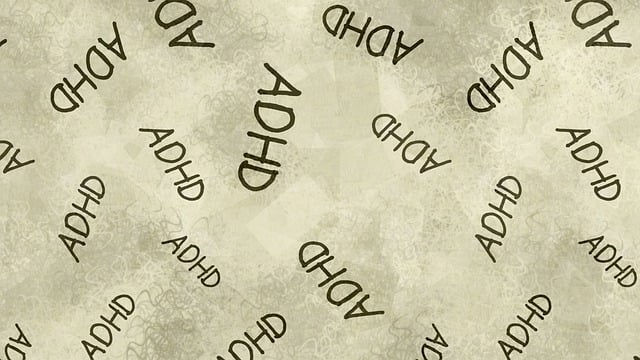Mental health policies and community outreach are crucial in supporting adults who have survived abuse, offering vital therapy services, self-esteem building, and burnout prevention. Despite global efforts, access to specialized therapy remains limited due to funding shortages and a lack of tailored programs. Advocacy drives policy changes promoting early intervention, integrated care, and culturally sensitive services. A holistic approach combining compassion cultivation, resilience building, and safe spaces empowers survivors to heal and rebuild their lives. Measuring success involves assessing long-term healing outcomes, with strategies like public awareness campaigns and evidence-based stress reduction methods driving policy improvements for Therapy for Adults Abuse Survivors.
Mental health policy analysis and advocacy are vital components in fostering supportive ecosystems for adults abuse survivors. This comprehensive article delves into the intricate relationship between mental health policies and their profound impact on survivor healing. We critically examine current policies, identifying gaps that hinder effective support, particularly for this vulnerable population. Through exploration of advocacy’s role, best practices in therapy and service integration, and successful measurement strategies, we advocate for policy changes to enhance long-term healing for adults abuse survivors.
- Understanding Mental Health Policy and Its Impact on Survivors of Adult Abuse
- Identifying Gaps in Current Policies: A Critical Analysis
- The Role of Advocacy in Shaping Effective Mental Health Strategies
- Best Practices for Supporting Survivors through Therapy and Service Integration
- Measuring Success and Promoting Policy Change for Long-Term Healing
Understanding Mental Health Policy and Its Impact on Survivors of Adult Abuse

Mental health policies play a pivotal role in supporting survivors of adult abuse and fostering their recovery journey. These policies, when effectively designed and implemented, can ensure access to essential services such as therapy for adults abuse survivors, thereby promoting healing and enhancing their overall well-being. Understanding the unique needs of this population is crucial; many survivors may face barriers like stigma, financial constraints, or a lack of awareness about available resources, hindering their path to recovery.
Community outreach programs can significantly contribute to overcoming these challenges. Such initiatives aim to raise awareness, educate communities, and provide support networks for abuse survivors. By integrating these programs with therapy services, self-esteem improvement strategies, and burnout prevention techniques for healthcare providers, a holistic approach to mental health advocacy emerges. This comprehensive model ensures that survivors receive not only the necessary treatment but also the social support required to rebuild their lives.
Identifying Gaps in Current Policies: A Critical Analysis

Identifying gaps in current mental health policies is a critical step toward advocating for improved care, especially for vulnerable populations like adults who have survived abuse. A thorough analysis reveals that while many countries have made strides in integrating mental health services into primary healthcare systems, there are still significant shortfalls. For instance, access to specialized therapy for adults who have experienced trauma and abuse remains limited, with disparities often stemming from inadequate funding allocation and a lack of tailored programs.
The design of Mental Health Education Programs must evolve to include comprehensive training on identifying and managing complex cases, including those involving survivors of abuse. Moreover, implementing robust Risk Assessment tools for mental health professionals can mitigate potential harm to clients, ensuring practitioners are equipped to handle high-risk situations. Resilience-building initiatives should also be prioritized to empower both healthcare providers and patients in navigating challenging circumstances.
The Role of Advocacy in Shaping Effective Mental Health Strategies

Advocacy plays a pivotal role in shaping effective mental health strategies by highlighting areas of need and driving policy changes that improve access to quality care. Mental health advocates, often driven by personal experiences or their work with vulnerable populations, bring attention to systemic issues and the lack of resources dedicated to addressing mental wellbeing. They advocate for policies that promote early intervention, integrate care across various settings, and ensure culturally sensitive services tailored to diverse communities.
For instance, advocacy has been instrumental in pushing for the development and implementation of community outreach programs targeting adults who have survived abuse, focusing on coping skills development and inner strength building. By championing these initiatives, advocates contribute to a more holistic approach to mental health, ensuring that underserved populations receive targeted support. This, in turn, leads to better outcomes and helps reduce the burden on the existing healthcare system.
Best Practices for Supporting Survivors through Therapy and Service Integration

Supporting survivors of adult abuse through therapy requires a holistic approach that integrates compassion cultivation practices and resilience building strategies. One best practice is creating safe and non-judgmental spaces where individuals feel empowered to share their experiences. Therapists should employ techniques like active listening, validating emotions, and fostering open communication to build trust and promote healing.
Additionally, focusing on inner strength development is crucial. This involves encouraging survivors to cultivate self-compassion, mindfulness, and coping mechanisms tailored to their unique needs. By combining these approaches with comprehensive service integration, therapists can help survivors navigate challenges effectively, rebuild their lives, and develop the resilience needed to thrive in the face of adversity.
Measuring Success and Promoting Policy Change for Long-Term Healing

Measuring success in mental health policy is an intricate process that goes beyond mere numbers. When focusing on therapy for adults abuse survivors, it’s crucial to assess long-term healing outcomes rather than short-term interventions. This involves tracking changes in psychological well-being, social functioning, and overall quality of life over extended periods. By setting measurable goals aligned with these aspects, policymakers can effectively evaluate the impact of initiatives like Community Outreach Program Implementation and identify areas for improvement.
Promoting policy change requires a multifaceted approach. Engaging in Public Awareness Campaigns Development can help dispel myths surrounding mental health and encourage early intervention. Simultaneously, integrating evidence-based Stress Reduction Methods into care plans can empower survivors with tools to manage trauma’s lasting effects. Ultimately, these strategies contribute to fostering inclusive systems that prioritize long-term healing for adults abuse survivors, ensuring they receive the comprehensive support needed for lasting recovery.
Mental health policy analysis and advocacy play a pivotal role in ensuring survivors of adult abuse receive the support they need. By critically examining existing policies, identifying gaps, and fostering collaboration among stakeholders, we can shape effective strategies that prioritize therapy and integrated services. Measuring success through rigorous evaluation allows us to promote policy change, fostering long-term healing for those who have endured trauma. Implementing best practices in mental health care for adult abuse survivors is not just a goal—it’s a necessary step towards building resilient communities where everyone has access to the resources they need to thrive.









